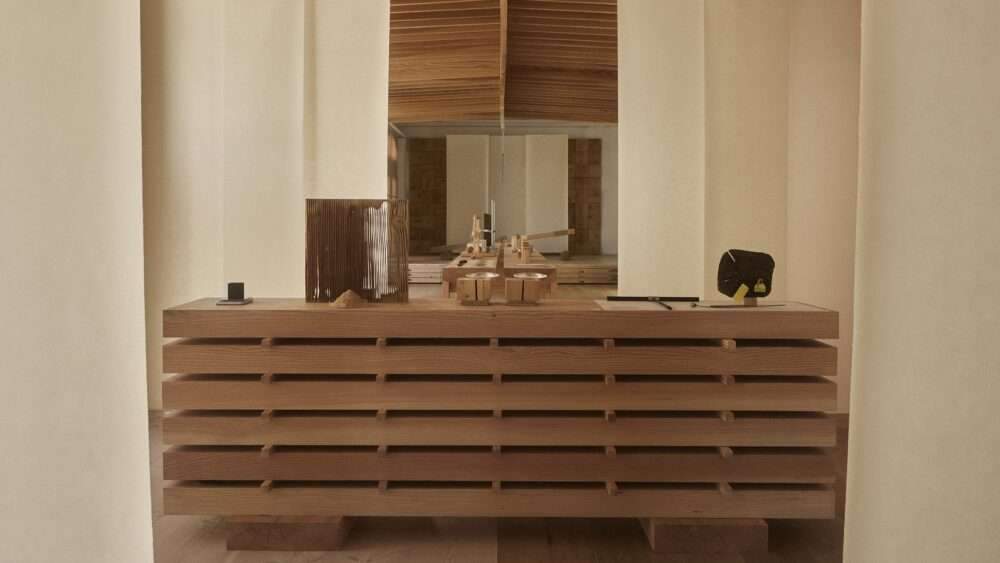Introduction
In a move that could reshape the future of digital design, Canva has announced a groundbreaking update under the name Canva Create 2025, introducing a suite of AI-powered tools. These tools are not merely aimed at simplifying the design process, but represent a fundamental shift affecting various creative fields—architecture and architectural design foremost among them. This raises an interesting debate about Photoshop vs Canva, especially with these new advancements.
Architects and designers can now access advanced design capabilities without relying on complex software like Photoshop. This evolution accelerates project development stages and enhances presentation workflows.
“The modern architect no longer needs complex traditional tools, but rather a flexible, AI-powered design environment.”
— Canva Create 2025 Announcement Report

Canva Create Features and Their Architectural Impact
1. Magic Edit
This tool allows designers to modify visual elements using AI, enabling architects to experiment with materials, furniture, or finishes within 3D visualizations or diagrams.
2. Magic Grab
Lets users select and move visual elements in an image, making it easy to adjust project renders or building facades without returning to complex software.
3. Magic Expand
Ideal for expanding architectural scenes and reframing visuals for presentations without compromising quality.
4. Magic Morph
Transforms architectural shapes and texts using simple prompts—perfect for testing visual identity or branding in projects.

5. Magic Write
An AI-powered content generator that helps produce architectural descriptions, design proposals, and pitch decks instantly.
6. Canva Sheets
A new way to analyze spatial data and usage through spreadsheet tools, directly integrated into visual reports.
7. Canva Code
While not directly architectural, it enables the creation of interactive web-based project portfolios or client presentations.
8. Advanced Photo Editor
Offers tools such as background removal, lighting adjustments, and surface material changes for photorealistic architectural renders.

9. Video Highlights
Helps extract key architectural animation sequences and create short, compelling presentation videos.
10. Magic Charts
Great for visually explaining project phases, budgets, or spatial relationships with clean, AI-generated charts.
11. Magic Media
Transforms text prompts into initial architectural concepts, speeding up early-stage idea testing before 3D modeling.
12. Canva Enterprise
Designed for architectural firms, this version includes team collaboration, brand management, and performance analytics.
“As design tools get smarter, architectural creativity becomes more liberated and explorative.”
— ArchDaily Architecture Platform

From a Tool to a Creative Partner in Architecture
What sets Canva Create apart is its transformation from a simple execution tool into a thinking partner in the architectural design process. Designers can now prototype ideas, visualize data, collaborate in real time, and generate final materials—all within a single platform.
“Using tools like Canva has become essential to keep pace with the speed and diversity of modern project demands.”
— Digital Design Workshop, Manchester School of Architecture
Summary Table: Features and Architectural Applications
| No. | Feature | Architectural Use |
|---|---|---|
| 1 | Magic Edit | Visually edit architectural scenes and materials |
| 2 | Magic Grab | Reposition furniture and scene elements |
| 3 | Magic Expand | Reframe architectural shots for better presentation |
| 4 | Magic Morph | Modify shapes and texts using prompts |
| 5 | Magic Write | Automatically generate project texts and proposals |
| 6 | Canva Sheets | Analyze and visualize spatial and usage data |
| 7 | Canva Code | Create interactive web pages for project portfolios |
| 8 | Photo Editor | Enhance architectural renders and backgrounds |
| 9 | Video Highlights | Showcase key animated scenes in short clips |
| 10 | Magic Charts | Create diagrams for stages, costs, and design logic |
| 11 | Magic Media | Generate architectural concepts from text prompts |
| 12 | Canva Enterprise | Manage team workflows and brand consistency |
Conclusion
Architectural design is no longer confined to heavy software and technical complexity. Canva Create 2025 offers architects and designers an intelligent, flexible, and integrated environment to shape ideas into presentable realities. While Photoshop still holds relevance for niche, high-precision tasks, Canva is fast becoming the first choice for architectural presentation, collaboration, and ideation in the digital age.





